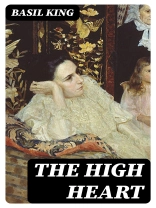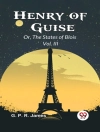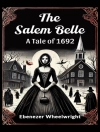Basil King’s ‘The High Heart’ is a profound exploration of love, sacrifice, and the complexities of human relationships, set against the backdrop of early 20th-century societal norms. The narrative follows the intertwined lives of its characters, drawing readers into a nuanced exploration of their emotional landscapes. King’s literary style is marked by rich descriptions and keen psychological insights, allowing for an intimate connection with the characters. The prose reflects the transitional period of the time, capturing the tension between traditional values and modern sensibilities, and thus situating the work within the broader context of early 1900s literature that grapples with the evolving definitions of morality and personal fulfillment. Basil King, a Canadian writer and social commentator, drew inspiration for this novel from his own experiences and observations of human nature. His background in law and his travels across North America and Europe enriched his understanding of diverse social settings, which he deftly incorporates into his narratives. King’s literary career was also influenced by the period’s philosophical inquiries about individuality and community, which resonate throughout ‘The High Heart.’ This pivotal work is a must-read for anyone interested in the intricacies of human connections and the societal pressures that shape them. King’s ability to weave emotive narratives with philosophical depth invites readers to reflect on their own lives and relationships, making ‘The High Heart’ not only a captivating story but also a thought-provoking examination of the human experience.
Об авторе
Basil King (1859–1928) was a Canadian clergyman who transitioned from religious service to become a prominent novelist and influential figure in early 20th-century literature. His exploration into the world of fiction was sparked by a loss of sight that led him to retire from the ministry and devote himself to writing. King’s work is often characterized by its exploration of moral and philosophical issues, blending his religious background with a rich psychological insight. Notable among King’s literary contributions is ‘The Inner Shrine’ (1909), a novel which established him as a major writer of his time. ‘The High Heart’ (1917), another significant work by King, exemplifies King’s adeptness at delving into themes of character development and the moral dilemmas faced by individuals. His novels were celebrated for their character-driven narratives and King’s ability to craft stories that were both engaging and thought-provoking. Though less well-known today, Basil King’s works offer a unique window into the societal changes and moral questions that were at the forefront of the early 20th century Western mind. His literary style bridges the transition between Victorian and modernist sensibilities, marking him as a noteworthy figure in the literary canon of his era.












